Who Were the Galileans in the Days of Jesus?
Jesus was a Galilean. That much we know. The question of who exactly the Galileans were during biblical times is a much more complicated matter. The origins and identity of the people dwelling in this northernmost part of Israel at the time of the Second Temple remains an unsolved and fascinating riddle of history—made even more interesting by the fact that the Galilee was the venue for most of Jesus’ ministry.
Easton’s Biblical Dictionary tells us: In the time of our Lord, Galilee embraced more than one-third of Western Palestine, extending “from Dan on the north, at the base of Mount Hermon, to the ridges of Carmel and Gilboa on the south, and from the Jordan valley on the east away across the splendid plains of Jezreel and Acre to the shores of the Mediterranean on the west.”


 Although the entire civilized world recognizes the teaching of Messiah, His promise of blessing extends beyond the spiritual realm into everyday life. In fact, if you have a cell phone, a huge company in Israel probably made your antenna.
Although the entire civilized world recognizes the teaching of Messiah, His promise of blessing extends beyond the spiritual realm into everyday life. In fact, if you have a cell phone, a huge company in Israel probably made your antenna.
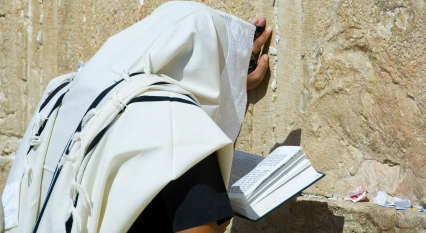 Journeying to the isolated state of Mizoram in northeastern India, Rabbi Jonathan Bernis and his team offer food and medical care to 5,000 Bnei Menashe—a starving community believed to be descended from one of the lost tribes of Israel, the Manasseh. Taken into captivity when Assyria conquered Israel 2,700 years ago, the tribe’s oral histories suggest that a remnant migrated to India, where they continued Jewish traditions.
Journeying to the isolated state of Mizoram in northeastern India, Rabbi Jonathan Bernis and his team offer food and medical care to 5,000 Bnei Menashe—a starving community believed to be descended from one of the lost tribes of Israel, the Manasseh. Taken into captivity when Assyria conquered Israel 2,700 years ago, the tribe’s oral histories suggest that a remnant migrated to India, where they continued Jewish traditions.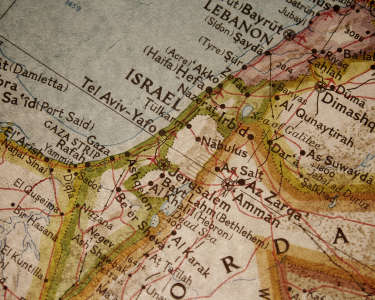
 It was a passage in Zechariah 14 that clinched it for Susan Jones, a Christian supporter of Israel from the United Kingdom. Immediately after reading the passage, Susan knew the time was right to plan her first trip to Israel.
It was a passage in Zechariah 14 that clinched it for Susan Jones, a Christian supporter of Israel from the United Kingdom. Immediately after reading the passage, Susan knew the time was right to plan her first trip to Israel.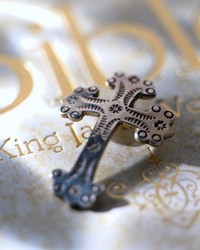
 Torah-observant Jews are extremely respectful of the Torah scroll. In each synagogue, the Torah scroll is placed in a special case called an ark. The scroll is rolled up, and a beautiful, embroidered cover is placed over the scroll to keep dust from collecting on it. When the time comes to remove the scroll for reading, a man is appointed to carefully remove the scroll from the ark and uncover it, placing it on the platform for the speaker.
Torah-observant Jews are extremely respectful of the Torah scroll. In each synagogue, the Torah scroll is placed in a special case called an ark. The scroll is rolled up, and a beautiful, embroidered cover is placed over the scroll to keep dust from collecting on it. When the time comes to remove the scroll for reading, a man is appointed to carefully remove the scroll from the ark and uncover it, placing it on the platform for the speaker.
 We are living in the last days, and many of the prophecies in God’s Word about Israel have been fulfilled. One of these main prophecies is in our reading in Jeremiah today.
We are living in the last days, and many of the prophecies in God’s Word about Israel have been fulfilled. One of these main prophecies is in our reading in Jeremiah today.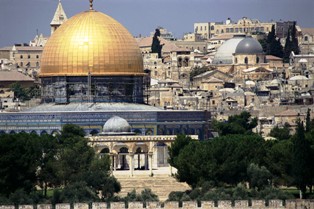
 Nearly everyone has a special place he would like to visit during his lifetime. For many people, that place is Israel.
Nearly everyone has a special place he would like to visit during his lifetime. For many people, that place is Israel.
 Though Jesus clearly said of His return to the earth, “Of that day or hour no one knows” (Matt. 24:36, NKJV), there are signs throughout Scripture that point to the second coming of the Lord. One of them is the increasing number of Jewish people who are coming to recognize Yeshua (Jesus) as Messiah, and another is the growing body of Messiah in the land of Israel itself.
Though Jesus clearly said of His return to the earth, “Of that day or hour no one knows” (Matt. 24:36, NKJV), there are signs throughout Scripture that point to the second coming of the Lord. One of them is the increasing number of Jewish people who are coming to recognize Yeshua (Jesus) as Messiah, and another is the growing body of Messiah in the land of Israel itself.
 Some 5,000 Christians from 100 nations marched through the streets of Jerusalem Tuesday to show their solidarity with the nation of Israel.
Some 5,000 Christians from 100 nations marched through the streets of Jerusalem Tuesday to show their solidarity with the nation of Israel.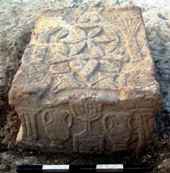
 The Israel Antiquities Authority in Migdal near the Sea of Galilee discovered a 2,000-year-old synagogue from the Second Temple period this month during archaeological excavations.
The Israel Antiquities Authority in Migdal near the Sea of Galilee discovered a 2,000-year-old synagogue from the Second Temple period this month during archaeological excavations.